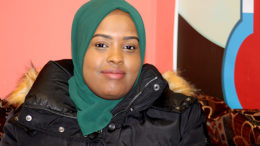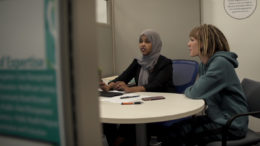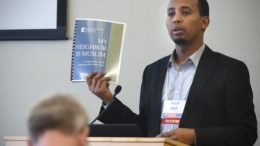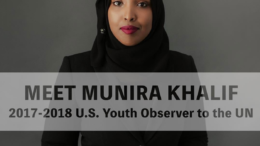Sheeko Xikmad leh
Nin baa masaajid ka eedaami jirey oo uu mu’addin ka ahaa. Subaxdiina seyladda xoolaha ayuu u dillaal tegi jirey, si uu quutal daruurigiisa uga soo saaro. waxa uu iibiyaa xoogaa xoolo ah oo dillaalka uga soo baxa iskaga bixiyo biilka qoyskiisa. Haddaba maalin maalmaha ka mid ah ayaa suuqii xooluhu xumaaday oo waxba laga iibsan waayey wadaadkii. Wuu yaabay oo talaa ku cadaatay. Isaga oo gadhkiisii u ekaa sonkorta iyo shaaha madow ee la isku daray rifaya oo bidaar aad mooddo madaar diyaaradi soo degayso kolba salaaxaya, ayuu u tegay dillaal kale si uu bal xaalkiisa isna wax uga ogaado oo hadduu wax dhaamo bal shaxaad iyo qadadiisa ugu yaraan uga helo. Haddaba intaanu u tegin ayuu laba orgi oo loo sii dhiibtey oo laga iibsan waayey meel ku sii xidhay. Ninkii dillaalka ahaa ayuu cabbaar ag joog joogay, waxaanu ogaaday in aanu ninkan laftiisu waxba dhaamin oo isba maanta qatan yahay. Waxa uu ku laabtay halkii labada orgi ugu xidhnaayeen. Markuu meeshii soo gaadhay ayaa wuxuu arkay labadii orgi ee uu kaga tegey oo aan meeshii kuba xidhnayn. Cabbaar buu baadh-baadhay ilaa markii danbe uu arkay iyadoo ay labadii orgi ay adhi kale dhex galeen. Ninkii adhiga watey buu…









